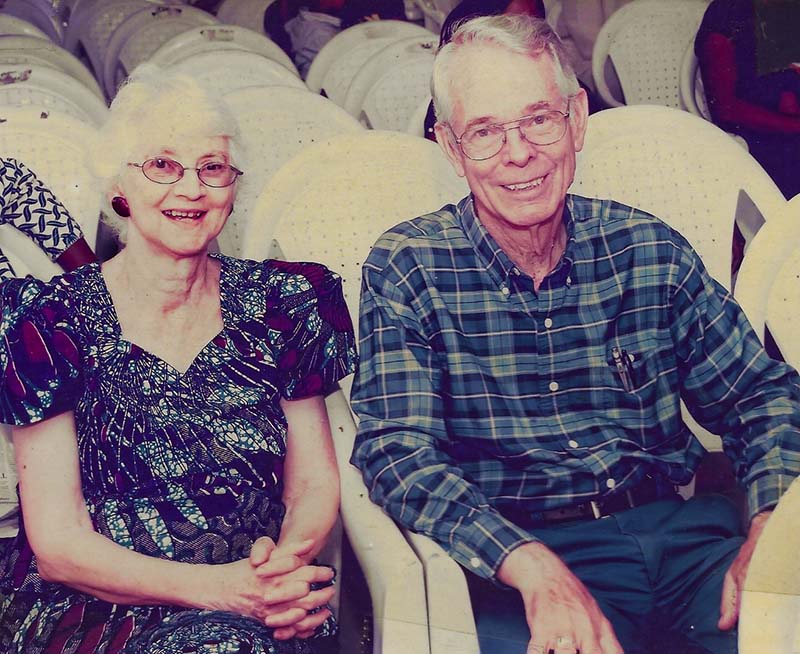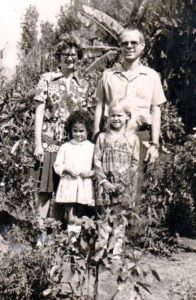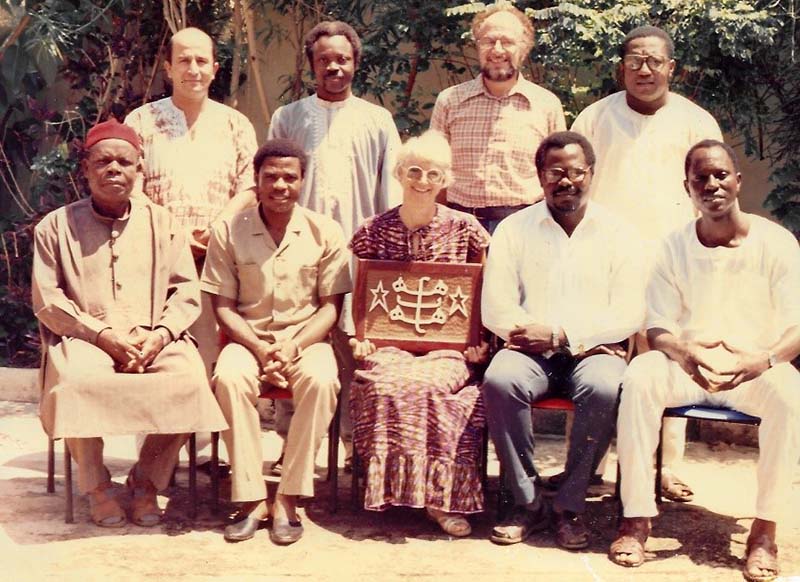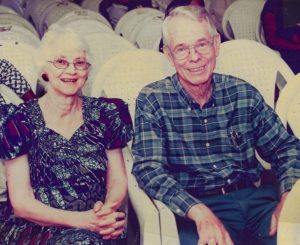



When Martha and Charlie Garman returned to the United States after 47 years in Africa, getting to know folks in Potsdam, New York, proved easy.
Everyone wanted to know about their experiences in Kenya and Nigeria as pioneers — the term for Baha’is who move from their homes to serve the Faith by working alongside neighbors to transform lives.
Such a head start in making friends opened opportunities for the Garmans to resume one thing they had loved doing in Africa: serving a process of community building. Baha’is and friends are engaged in this process in thousands of neighborhoods worldwide.
The couple chose to move to Potsdam to be near their oldest daughter and her family. Within two months a team of Baha’is focused on raising the level of community-building activity in sparsely populated northern New York visited them, and the Garmans learned they are still pioneers.
Homefront pioneers. And they couldn’t be happier.
“We are singing the praises of the institute process now in neighborhoods, teaching community building and giving the neighborhood ownership of the growth process,” says Martha Garman.
After all, the Garmans had been steeped in the institute process, in which Baha’is and friends are trained to initiate a set of activities that promote community, since long before most of the world’s Baha’is had heard the term.


Only two years after their arrival in Kenya in 1972, they were engaged in nine-day educational sessions to help people gain deeper knowledge of the Baha’i vision for society and equip them to share it. Martha Garman, as a member of the Baha’i National Education Committee, was helping organize them.
“The men slept outside in the garage, which had no running water, in our compound on a college campus,” she recalls. “The ladies slept inside with our girls.”
Since many participants had no previous exposure to Baha’i teachings, writings on various topics were churned out on a mimeograph machine on colored paper. “There were Baha’i writings on one piece of paper, turned sideways, folded like a book,” says Martha Garman.
During a study on the topic of marriage as a “fortress for well-being and salvation,” she recalls that one man responded, “You mean marriage is like a permanent building.”
“Many of the early participants became Auxiliary Board members” — appointed to advise Baha’i communities in an area — “who repeated the same system with their assistants. That is the area in western Kenya where [a] local Baha’i House of Worship is now being built.” This is one of the first local Baha’i Houses of Worship in the world.
The Garmans were serving in Nigeria by 1988, the year they first heard of the Ruhi Institute, That institute’s set of courses, first developed in Colombia, trains people to use the Word of God, rather than paraphrasing it, in sharing spiritual concepts. The facilitator was Jamal Bookwalter, then a youth from Colombia, now living in Michigan.


A decade later the Ruhi curriculum was adopted worldwide, and Martha Garman, as an Auxiliary Board member, was encouraging its study across Nigeria.
Professionally, the Garmans researched and taught methods of agriculture and home economics. And that would be how they first met people upon landing in Potsdam in September 2019.


While they met with the owner of an organic vegetable farm, a man who happened to have experience with farmers in Mozambique, a young woman heard their conversation and asked to interview the Garmans for North Country Public Radio.
“Three weeks later when the interview was aired, it was five minutes about the Baha’i Faith,” and nothing about agriculture, says Martha Garman. “The interviewer was so delighted to hear a solution to unify religions that it was the topic of the interview.”
As the couple met neighbors, they initiated a regular devotional gathering. African doctoral students living nearby are among attendees.
A close relationship with another neighbor resulted in the Garmans enrolling in a tai chi class and engaging with people there who had heard the radio interview, including one who had spent time in, you guessed it, Africa.
Once a pioneer …


![]()
![]()
Whether you are exploring the Bahá'í Faith or looking to become an active member, there are various ways you can connect with our community.
Please ensure that all the Required Fields* are completed before submitting.